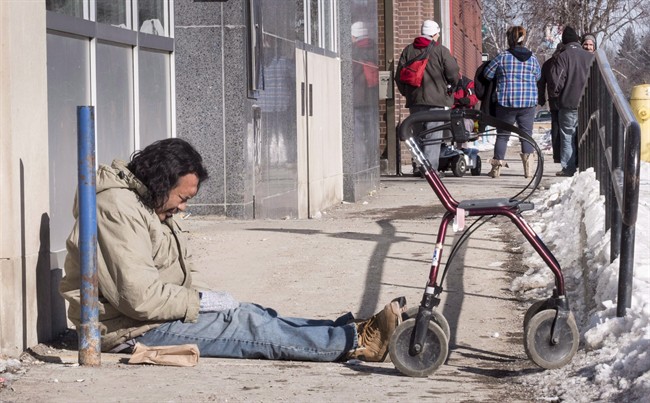People in need of a helping hand during the holidays aren’t getting it, but it’s not because help isn’t available — it’s because of stigma.

That stigma is putting pressure on people’s mental health and in some situations, the guilt of feeling like they’ve failed is making it tougher to come forward.
Union Gospel Mission spokesperson Jeremy Hunka says it’s OK to ask for help.
“People are hoping to get something for their friends or family or to make a trip; everyone can relate to that stressful crunch and there’s that added feeling of shame or guilt that you can’t be there for your family, and just the hit to the pride to ask for help sometimes.”
Hunka says living in Vancouver, which is one of the most expensive cities in the world, only creates more pressure on people’s mental health, and he’s seeing people who never thought they’d be in such a situation.
“They feel guilty that they can’t provide for their families, for their loved ones, they feel guilty that they’re in a position where they are homeless or on the brink of homelessness and that makes it all the more harder for them to come forward.”
He says many refuse to cut themselves some slack.
READ MORE: Union Gospel Mission dishes up 3,000 meals for annual Christmas dinner
“A new shelter guest who just came by…said last year at this point he was in a position where he could donate $1,000 to a children’s charity, and this year he’s in a homeless shelter, and he was talking about the grief and shame that comes with having to ask for help instead of being the one who can give help.”
Based on the latest numbers, more than 3,600 people in Metro Vancouver are considered homeless.






Comments